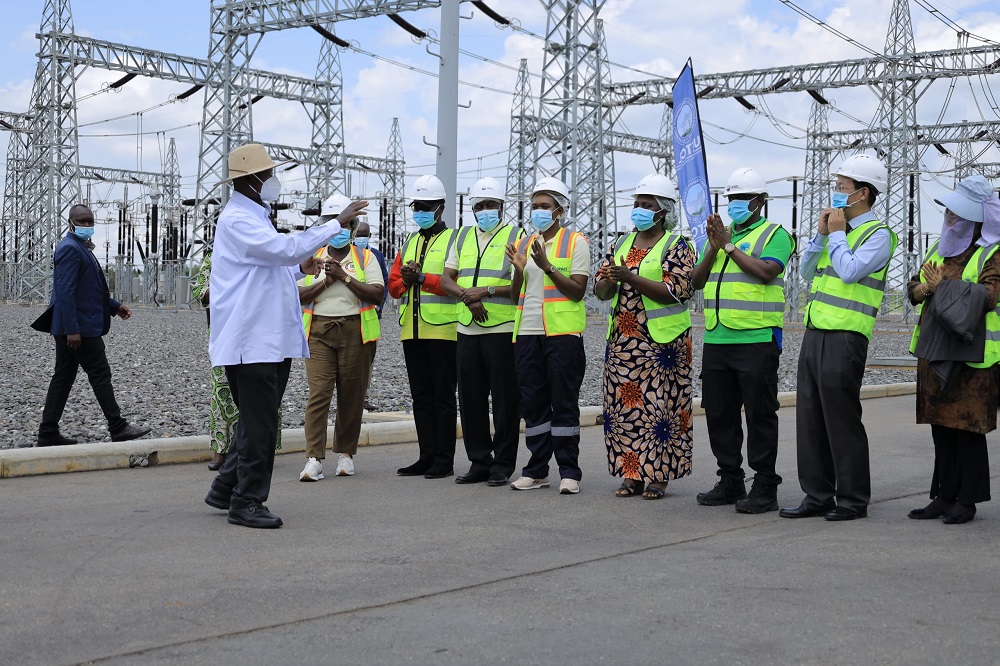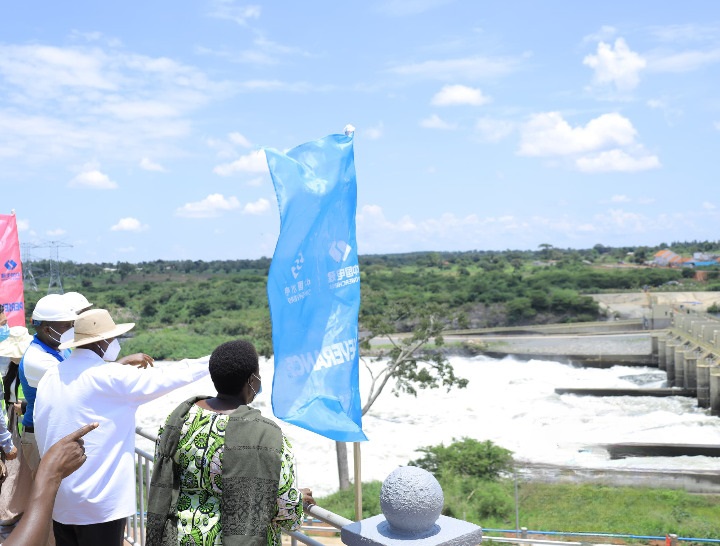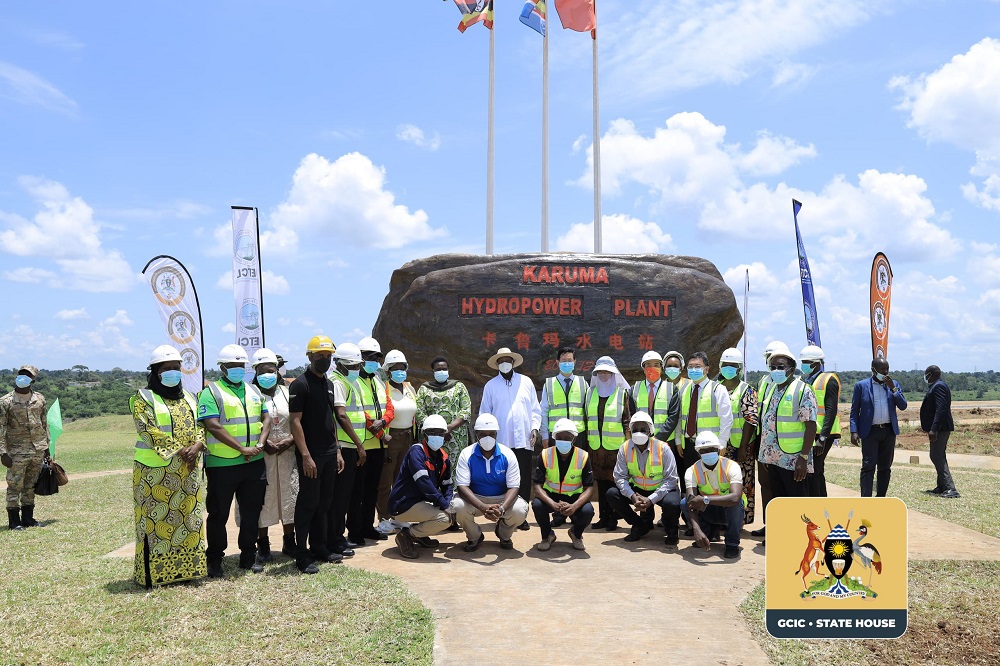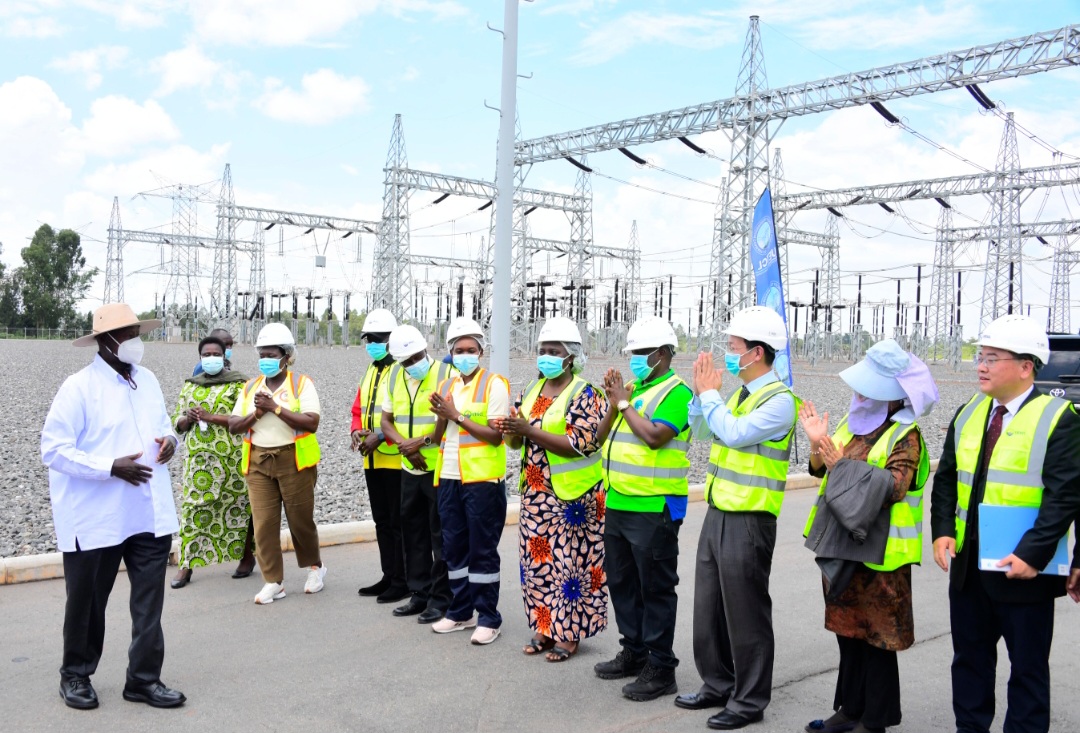Kiryandongo, (UG):- President Yoweri Museveni Thursday commissioned the Karuma Hydropower Plant in Kiryandongo District and called on Ugandan engineers and leaders to focus on calculating and increasing the country’s energy capacity.
The 600 MW hydropower project, constructed by Sinohydro Corporation Limited, a Chinese company will raise Uganda’s total installed generation capacity to 2000MW, meeting the growing demands of our economy and improving the quality of life for all citizens.
While speaking at the commissioning, Mr Museveni pointed out that while the country has made significant strides in increasing its power supply, more needs to be done. “Go and look at the internet for the kWh per capita of the US, Europe, and other places,” he said.
The 80-year-old NRM leader emphasized that Uganda needs to know where it stands in comparison to other nations in terms of energy production per person. “Our engineers should calculate and tell us what the kWh per capita of Uganda is. Don’t say we have enough power just because we are commissioning this hydropower plant.”
The president’s remarks reflect his concern about the future energy needs of Uganda, especially in light of its rapidly growing population. He projected that in 30 years, Uganda’s population would reach around 100 million.

Museveni, now 80 years old, humorously added that by that time, he would likely “be in Heaven,” but noted that his family has a history of longevity. “In 20 years from now, I’ll be 100 years of age. But you never know, because my uncle died at 106.”
Mr Museveni also thanked the government of China for funding the construction of the power plant and acknowledged Sinohydro for delivering quality work. “At least now we have made progress, but we have a long way to go; our target is to have enough electricity at a low cost,” President Museveni noted.
The President also told the gathering that Uganda has four key sectors of the economy: commercial agriculture, manufacturing, services, and ICT. He emphasised that to effectively run these sectors, the country needs low transport costs, cheap and reliable electricity, and access to markets.
“That is why you hear that we are repairing our railway lines and will construct more railway lines to achieve lower transport costs,” President Museveni stated.

Additionally, the President highlighted the importance of skilled human labor, noting that all factories across the country rely on skilled workers, a factor vital for boosting the economy.
Regarding the issue of vandalism of Electricity infrastructure along these lines, Museveni promised to collaborate with the Cabinet to devise a lasting solution to the problem. He also cautioned Ugandans, especially those in agriculture and manufacturing, against borrowing from money lenders.
“Borrow from UDB, Emyooga, or PDM. I have nothing to do with money lenders because they are your enemies. I am going to take action against them; I will crush them because they are criminals.”
In her remarks, Vice President H.E. Jessica Alupo stated that the commissioning of the Karuma Hydropower Plant marks a significant milestone in Uganda’s development.
“The Karuma project is the steppingstone for Uganda to achieve its target of 52,000 MW by 2040,” she said.
The Minister of Energy and Mineral Development, Hon. Ruth Nankabirwa, noted that the project was partly funded by the Government of Uganda (15 percent) and the Exim Bank of China (85 percent).
The Ambassador of China to Uganda, H.E. Zhang Lizhong, expressed his delight at the realization of the Karuma Hydropower Plant, describing it as a historic development for Uganda. “I am happy to say that today our bilateral relations have reached their highest level,” he remarked.
Eng. Badru Kiggundu, Chairperson of the Karuma and Isimba Hydropower Project Steering Committee, emphasised that Karuma is Africa’s largest underground hydropower plant. He thanked the contractor for successfully delivering a high-quality project.

The commissioning of the 600-megawatt Karuma Hydropower Plant is a significant milestone in Uganda’s infrastructure development and is expected to provide much-needed electricity to fuel industrialization and economic growth.
Uganda’s energy capacity has grown from 380 MW in 2005 to over 2,000 MW in 2024, including the 600 MW from Karuma, bringing Uganda closer to its Vision 2040 target of 52,000 MW.
Send us your story or opinion on: dailyexpressug@gmail.com. You can also follow Daily Express on WhatsApp for all the latest news and updates.





